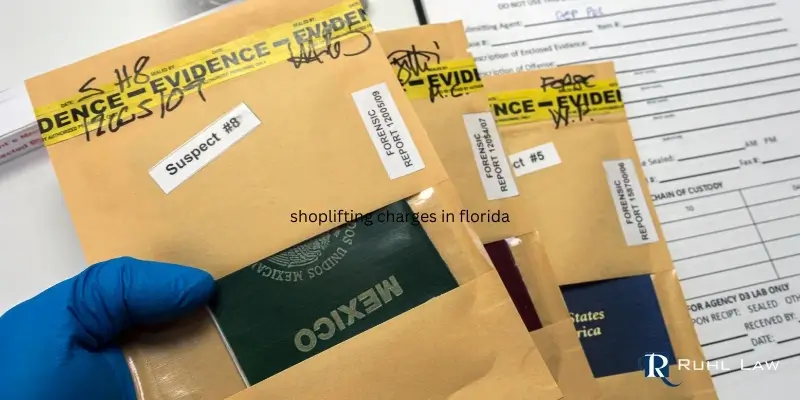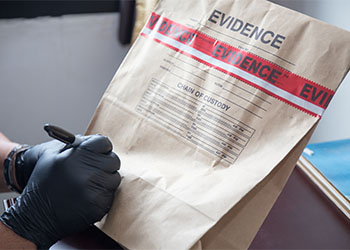Motions to Suppress: Getting Evidence Excluded

Motions to Suppress: Getting Evidence Excluded
 Evidence – including physical proof, scientific evidence, or witness statements – plays a huge role in the outcome of every criminal case. However, depending on how the evidence was obtained or the role of the evidence in the prosecution’s case, a defendant may request that certain evidence is excluded from the trial. A knowledgeable Florida criminal defense attorney can help you understand what a motion to suppress is and the possibility of suppressing such evidence.
Evidence – including physical proof, scientific evidence, or witness statements – plays a huge role in the outcome of every criminal case. However, depending on how the evidence was obtained or the role of the evidence in the prosecution’s case, a defendant may request that certain evidence is excluded from the trial. A knowledgeable Florida criminal defense attorney can help you understand what a motion to suppress is and the possibility of suppressing such evidence.
The attorneys at Ruhl Law are dedicated to offering comprehensive legal counsel and reliable advocacy to clients in their criminal cases. This skilled legal team is available to evaluate all of the facts of your case and determine whether you can exclude certain evidence by filing a motion to suppress. Ruhl & Lux, P.A is proud to serve clients across Port Charlotte, Sarasota, and Fort Myers, Florida.
What Is a Motion to Suppress?
A motion to suppress can be described as a request or motion filed by a defendant – in advance of a criminal trial – seeking that the judge should exclude specific evidence from the trial. For example, a defendant can request the court to suppress a confession by the suspect to law enforcement that was obtained through Miranda rights violations. Through the exclusionary rule, any evidence that gets suppressed may not be presented against the defendant at trial.
Reasons You May Want a Motion to Suppress
According to the FBI’s Uniform Crime Reporting (UCR) Program, there were an estimated 10,085,207 arrests made by law enforcement nationwide in 2019. A defendant may want a motion to suppress based on the following reasons (legal grounds):
- The evidence was obtained through unlawful search or seizure.
- The evidence was obtained due to an unlawful traffic stop or arrest.
- The evidence was obtained through an unreasonable search conducted without a search warrant.
- The evidence was obtained using a deficient or defective search warrant.
- The police violated the defendant’s constitutional rights while obtaining the evidence.
- The police obtained evidence or statements from the defendant without reading their Miranda rights to them.
- The law enforcement failed to preserve the chain of custody of the evidence.
If you believe that evidence was obtained unlawfully or is inadmissible and want to file a suppression motion, you need to reach out to a skilled criminal defense attorney immediately. Your defense counsel can help you understand your available legal options and walk you through the process of filing a motion to suppress.
What Is the Process for Filing a Motion to Suppress?
To suppress evidence in Florida, the defendant’s attorney (the defense counsel) must file a formal motion to suppress or exclude the evidence from trial. The criminal defense lawyer may file the motion in a state or federal court, depending on where the trial is taking place. The judge will hear the motion to suppress and make a decision.
If the motion to suppress is approved, the judge will order the evidence to be excluded from the criminal trial. An experienced criminal defense attorney can identify the evidence that can be suppressed and guide you through the legal process involved in filing a suppression motion.
What Evidence Is Subject to Exclusion?
Depending on the surrounding circumstances, the following pieces of evidence may be subject to exclusion:
- Witness testimony
- Confessions
- Written statements
- Statements from an illegal wiretap
- Drugs
- Breathalyzer results (BAC level)
- Financial records
- Results of other scientific tests
- Photographs
- Results of blood or urine tests showing the presence of controlled substances
- Audio recordings
A skilled attorney can evaluate every detail of your case thoroughly and determine whether such evidence is subject to exclusion.
How a Criminal Defense Attorney Can Help
In Florida, criminal cases are built upon reliable evidence. In the event that the evidence was obtained during an unreasonable search, in violation of the defendant’s rights, with a defective search warrant, or is otherwise inadmissible, you may be eligible to file a motion to suppress seeking that such evidence should be excluded from the criminal trial. A knowledgeable criminal defense attorney can enlighten you about your available legal options and help you navigate crucial decisions.
For more than 15 years, the attorneys at Ruhl & Lux, P.A have been representing and defending individuals in their criminal cases. They will conduct a thorough investigation and determine whether the evidence can be used to prove or challenge the facts of your case. Also, these skilled attorneys will identify evidence that was obtained unlawfully and file a motion to suppress them.
Contact Ruhl & Lux, P.A today to schedule a simple case assessment with a reliable criminal defense lawyer. This knowledgeable legal team can provide you with the detailed legal counsel, advocacy, and comprehensive representation you need in your case. Ruhl & Lux, P.A is proud to represent clients across Port Charlotte, Sarasota, and Fort Myers, Florida.
© 2026 Ruhl Law, P.A. • All Rights Reserved.


